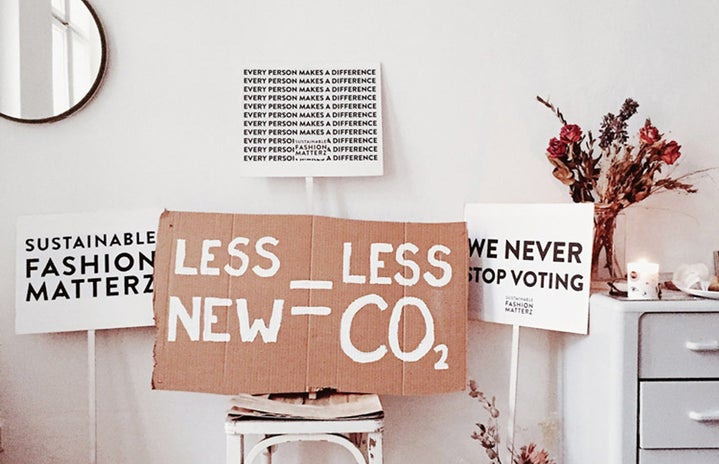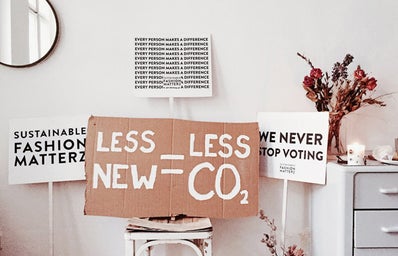Do you know how your clothes are made? Or where? By whom? The fashion industry is full of hidden horrors and people are starting to question the ethics behind the runways. Glamour isn’t the only important thing a fashion brand needs nowadays: sustainability is a growing concern of the consumers. As climate change increases its impact on the planet, environmental movements — like Fashion Revolution and Sustain Your Style — get stronger every day. It’s time to take action.

What is eco-fashion?
Eco-fashion refers to items that are produced with low or no-harm to the planet. That includes work conditions, water and energy usage, CO2 emissions, the origin of the materials, amount of chemicals used, clothing waste, recyclability and other aspects. From textile production to transportation of the final product, eco-brands are concerned about cultural, economic, social and environmental impacts. Most companies today, unfortunately, are not eco-friendly because it’s cheaper to leave ethics aside, even though the planet is being recklessly polluted.
Is “eco” just a new trend?
Being eco-friendly might be fashionable these days, but what happens when this trend, like everything in fashion, goes out of style? Despite the fact that sustainability only took these proportions because of a trend, it is actually helping the environment, so it’s up to us to keep the movement going. If we want to live on a healthy planet, eco-fashion needs to be a “permanent trend”.
Paty Barbosa’s thoughts
Her Campus interviewed Fashion Revolution’s representative in Brazil, Paty Barbosa, on her views about eco-fashion.
Where to begin?
The sustainable fashion consultant believes it’s possible to live fast-fashion-free, but boycotting isn’t the proper course of action. Fast-fashion is a pattern of production in which items quickly are manufactured, consumed and discarded. Many people rely on this industry as their source of income, therefore society should reevaluate the weight of their consumption, as well as demand different postures from big companies.
“Balance and consistency lead to conscious consumption, and the planet is grateful for it”, says Paty.
How to avoid “greenwashing”
According to Paty Barbosa, to identify if a fashion label is “greenwashing” — conveying a false public image of sustainability — you have to watch closely the company’s supply chain. Usually, eco-brands are transparent about their manufacturing process. When doing research, here are some of the aspects you should keep an eye on:
- Reverse logistics;
- Upcycling;
- Raw material reutilization;
- Conscious usage of virtual water;
- Minimal waste;
- Natural fiber utilization;
- Ecological or botanical dyes.
Accessibility
Ethical fashion sounds expensive, but it doesn’t have to be. One accessible practice recommended by the activist is exchanging clothes with family and friends instead of buying new ones. That way, you’re supporting a circular economy and avoiding unnecessary waste. In terms of taking eco-fashion to low-income classes, Barbosa feels education and awareness are the best options, for now, considering that fashion statistics are still recent and hard to find.
The future of fashion
“The future is now”, says the fashion designer. She believes consumers, essentially millennials, are going through an intimate change, to which the fashion industry will have to adjust. “Fashion can save or destroy the planet”, it’s up to us to decide.
What can we do?
- Deliberate before buying new items: do you really need them?;
- Buy second-hand clothing from thrift shops or vintage stores;
- Borrow outfits from your friends;
- Rent clothes (those fancy dresses you’re probably only going to wear once);
- Invest in high-quality pieces and take care of them: they will last longer;
- Think twice before throwing out clothes: you can try to cut it into a different piece, redesign, repair, or donate;
- Upcycle: many stores accept damaged pieces so they can transform them into new, more valuable items;
- Consume from eco-brands: always research before buying.
If you own a brand and want to incorporate eco-fashion, you can visit Regenerate Fashion.
——————————————————————
The article above was edited by Amanda Moraes.
Liked this type of content? Check Her Campus Casper Libero home page for more!


